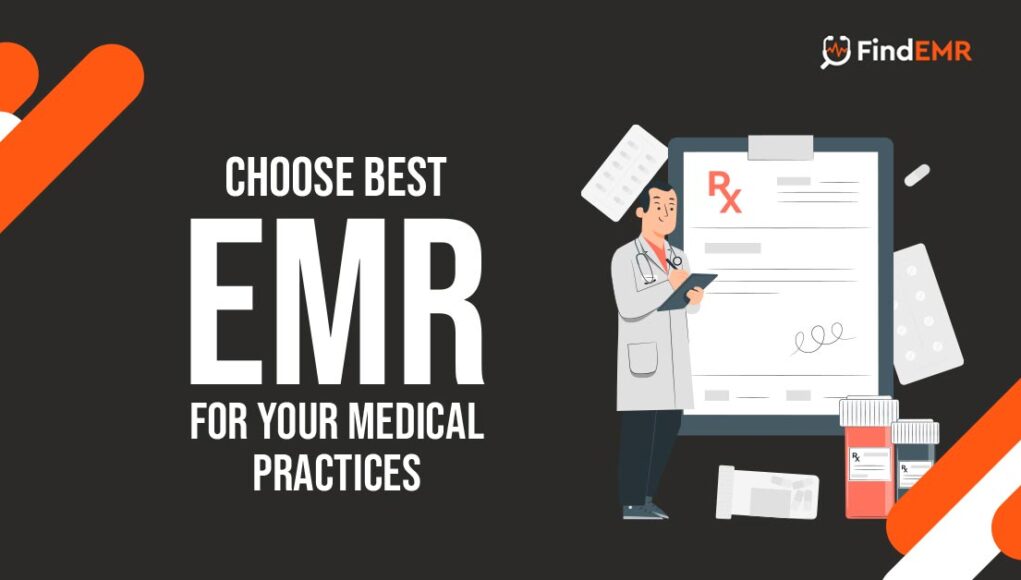When it comes to EMR software, you need to make sure you choose a software that fits your needs. AltaPoint EMR is a great option, because it allows you to customize the software based on specialty. Cocentrix EMR, on the other hand, has limited customization, and can be used by any type of medical practice.
Table of Contents
Document-scanning
Document-scanning features are critical for a medical practice, since they are used to process patient records. Using document-scanning applications makes the process easier, faster, and more secure. In addition, it helps eliminate backlogs and costs of document-scanning projects.
Document-scanning features are important features of specialized EMR solutions. They allow clinic personnel to set up customized workflows to efficiently forward the appropriate documentation to the billing clerk. This eliminates the need for clinic personnel to physically obtain the documents for each patient, reducing the risk of missing paperwork or billing delays.
EMR software can be expensive. Make sure you get a comprehensive package that suits your practice’s needs. Many vendors will allow you to customize the software for your practice. You can even add modules for specific disciplines. Before purchasing an EMR software, make sure to ask the vendor about its pricing and customer support. A lack of customer support is one of the leading reasons why implementations fail. The vendor should provide support for staff during implementation, answer questions about the platform, and offer plans for future releases.
Medication tracking
There are many advantages to using an EMR system, but not all are created equal. Some are built for larger healthcare organizations while others are designed for smaller independent practices. EMR software features include symptom checkers and integrated drug databases that can help doctors prescribe the right medications and dosages for their patients.
With EMR software, physicians can keep track of all medications prescribed to patients and monitor possible interactions between them. They can also identify adverse reactions or allergic reactions to certain medications. Additionally, EMR software includes a feature that provides patient warnings about prescribed medications and suggests alternative medications.
An EMR can also help doctors and healthcare providers create and manage patient data digitally. Some EMRs allow physicians to send electronic prescriptions to pharmacies, track patient history, and store patient information securely. They can also help physicians comply with regulatory requirements and qualify for government incentives. Additionally, EMR systems help improve workflows by automating billing and assigning codes.
Specialty-specific capabilities
Specialty-specific capabilities in EMR software are designed to streamline workflows for specialists in a particular field. These features reduce the administrative workload and improve overall productivity. They also include procedures templates and calendar tools that make it easy to schedule patients and prevent double bookings and appointments during unavailability. Furthermore, these systems help physicians access patient records instantly, which can help improve patient care.
For example, with IMS, providers can dictate notes directly into the EMR. These notes are immediately available to other physicians, staff, and attorneys. IMS also includes a speech recognition feature that recognizes notes in the medical record. Additionally, physicians can receive alerts on important tasks and reminders from their EMR software.
AltaPoint EMR software offers customizable templates for various specialty areas. This means that you can add and customize features to meet your needs. For example, you can create a chart to record your cardiology patient’s medical history, which can be very helpful for doctors.
HIPAA compliance
HIPAA compliance requires every company and individual working with protected health information to follow the rules and regulations. This includes healthcare clearinghouses that transfer data between healthcare providers, healthcare plans, and billing services. There are several ways to ensure that healthcare organizations comply with HIPAA regulations.
One of the most important things to consider when selecting an eMR software solution is its HIPAA compliance features. A HIPAA compliant solution will protect patients’ information and keep the information secure. This software should include security features such as intrusion prevention systems, anti-malware, and next-gen firewalls. It should also provide 24/7 threat monitoring and comprehensive security assessments. It should also provide audit trails for tracking access to PHI so that the user can monitor any non-compliant activity.
HIPAA requires that health care providers keep medical records for at least six years. Some states require even longer holding times. In addition, the rules also require that they get patient consent before disclosing their information.















